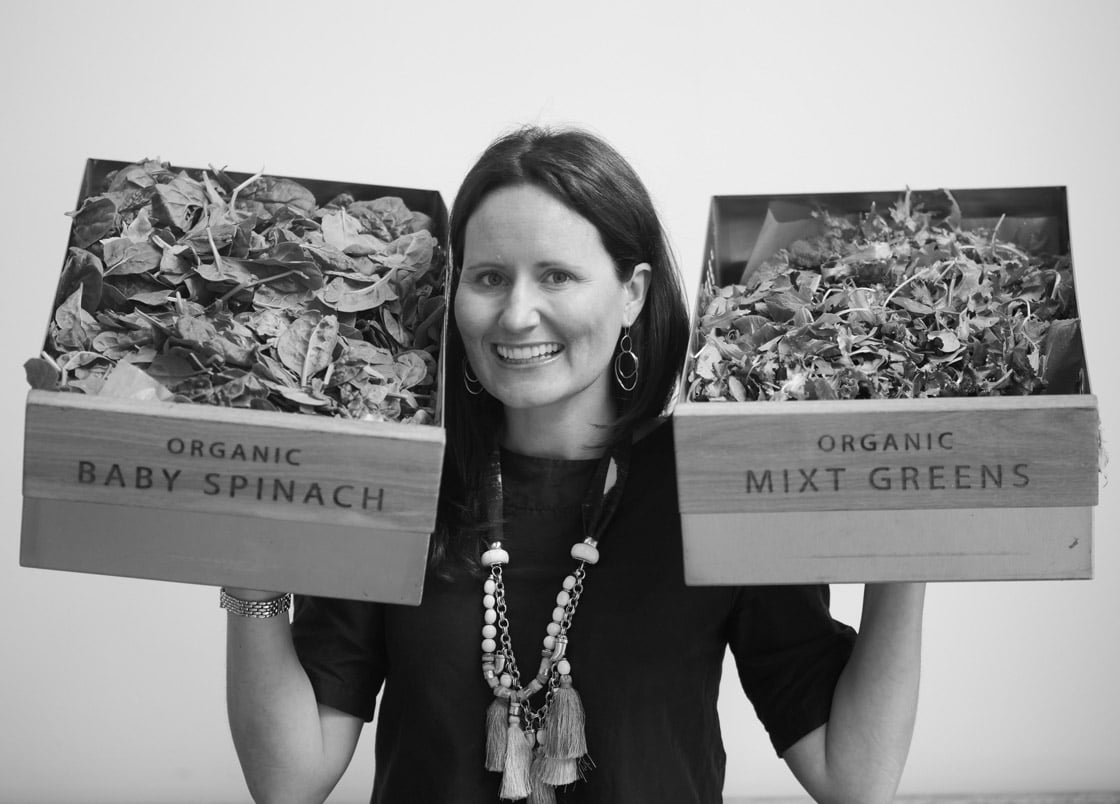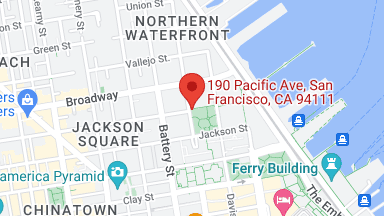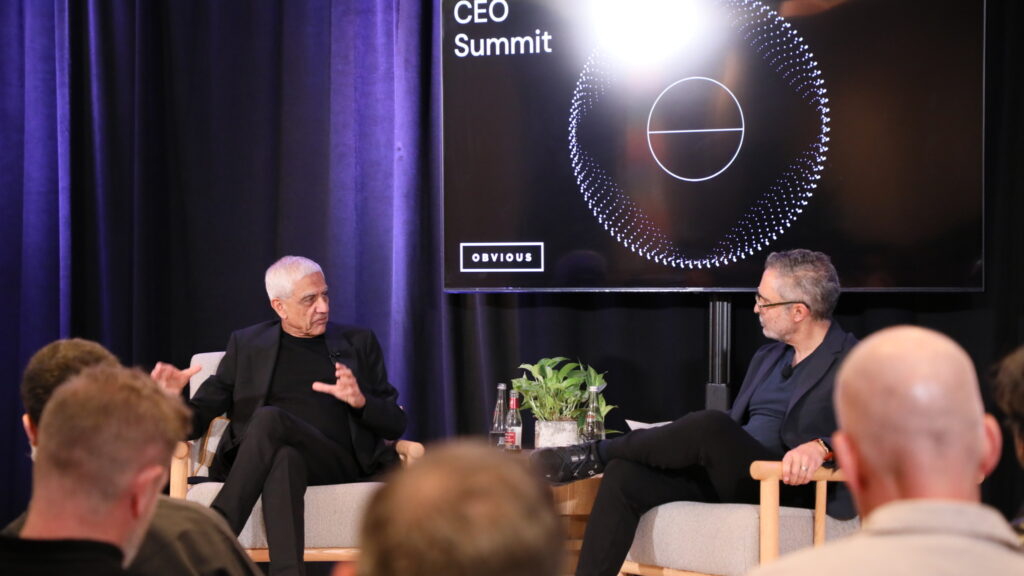Leslie Silverglide Flips the Fast Food Script
The visionary co-founder/CEO shares her personal journey and take on the societal shifts that led to MIXT
Obvious |

“If you want to do it, do it. Never think small.”
This feeling — instilled by her mother — has stayed with MIXT CEO Leslie Silverglide her entire life.
Born in Nashville and raised in New Jersey, Leslie lived with her mother and her brother from the time she was 11. After 10 years as a stay-at-home mom, Leslie’s mother returned to work at a school for students with learning differences and quickly hatched ideas for creating her own school. By the time Leslie was 13 her mother had started her own academy dedicated to these students, the Banyan School.
“She was super scrappy in how she raised money, got it built, recruited teachers, and brought on others to join her. I would work for her in the summer as the office admin, so I received real-world experience and insight into the amazing organization she created. Talk about scrappy — she used me! It was a win for everyone.”
It was also driven by raw passion, unrelenting dedication, and a clear vision that each child should receive an education uniquely designed for his or her needs, inside and outside the classroom. Parents would call 24 hours a day, and her mom took the time to help them all — and, as a result, was deeply connected to each one. Her mother returned to New Jersey for the school’s 25th anniversary celebration this year.
“Watching my mom build the Banyan School, I didn’t realize I was getting an invaluable lesson in entrepreneurship every day.”
Confidence-Building Measures
While schools and healthy meals are vastly different enterprises, their roots in Leslie’s story date back to the same time. At 14, she discovered Operation Crossroads Africa, a two-month community-project program that accepted only college graduates. After being rejected on multiple occasions due to her age, the organization relented and let her in when she was 16. “Cross-cultural exchange programs weren’t ubiquitous at the time like they are today — they gave you a ticket, told you where to go, hopefully someone would meet you at the airport, and that was it. I lived in a rural village in Uganda in 1997, and the only way I could call home was at the post office three hours from the village.”
“It was an unbelievable experience for me to gain courage and confidence in myself, and to understand what I was capable of.”
At the time, Leslie was a gymnast and used those skills to design a physical-education program for a school in Uganda: simple calisthenics; games; and a robust, novel curriculum. That led to a lifelong connection with health and wellness, with a more immediate focus on international development that brought her to Johns Hopkins University to study international relations. After meeting her husband David there, both ended up at Oxford for graduate school — Leslie for a master’s in conservation and biodiversity and management, and David for an MBA. In an ironic twist, not going to business school at the time made her realize that “engaging in business” was one of the best ways to have a meaningful environmental impact.
“A Gaping Hole in the Market”
After Oxford, Leslie and David decided to start a business, and their first idea — a “green” Home Depot that made environmentally responsible homebuilding more accessible — didn’t get off the ground. They realized that “two kids in their mid-20s without construction experience in a capital-intensive industry weren’t going to get very far.”
Not long after, her brother, a fine-dining chef, complained about not being able to get high-quality ingredients outside five-star restaurants. That struck a chord with Leslie and David: What if we made higher-quality, more-healthful meals more accessible in a fast-casual setting?
She set out to learn more by planting herself in San Francisco’s financial district at lunchtime, counting people passing through the doors of fast-casual and takeout spots — the overwhelming majority of which served exclusively burgers, burritos, and pizza. The numbers were big.
After a tiring search they were able to find a location at Sansome between Pine & Bush (and, more important, a landlord willing to take a risk). They started building the menu, and marked the calendar for opening day: April 17, 2006. “We had no idea how things were going to go,” Leslie admits. “A few weeks before opening we discussed how we were going to get the word out, so I cold-called every editor and outlet in the Bay Area.”
It paid off.
Mixt Greens, as it was initially named, ended up in every major Bay Area publication — and a line wrapped around the block as they opened the doors. Before the end of the day they’d run out of food and had to transform the operation overnight, doubling staff and stock. Not surprisingly, they did twice as much business on day two.
“For us to have a sustainable business model, we were hoping to serve 250 people per day. By the end of the first month we were serving over 800. We knew we had struck a chord and found a gaping hole in the market.”
Serve Kick-Ass Food (But Keep Sustainability on the DL)
In today’s market, brands often make marketing moves with the understanding that consumers are shifting their behavior based on purpose and commitment to sustainable practices. Leslie and her team were ahead of their time in this respect, scrutinizing every element of their business through a sustainability lens from day one: where they sourced ingredients, packaging, landfill diversion, waste management, energy and water usage, and the health of the physical spaces themselves. Despite these advanced environmental practices, they chose not to market that message.
“We made the deliberate decision not to ‘scream’ about it — we wanted our customers to fall in love with the food. There was a strong perception that if you promoted environmental benefits, you were sacrificing something. We wanted to break that myth.”
Their philosophy was simple: Serve kick-ass food that people love and deploy more-sustainable operational practices. “Fast forward 12 years to today, and the things we did that were novel have now completely infiltrated the restaurant business because it’s the smart way to do business due to cost savings and customer support.”
The path toward today, however, wasn’t linear for MIXT and Leslie.
Hey Google, What’s EBITDA?
In 2009, Nestlé’s private-equity firm acquired the business. The financial crisis was deepening, and while Leslie and David had a vision for growth, they had an opportunity before them and decided to sell.
This provided Leslie with the chance to breathe, reflect, and choose a new path.
“I took a step back and asked, ‘What’s the best thing I can do?’ The one thing I wished I had at the time was at least some formal business background, as I’d never taken a business class in my life. [At one point] we were entertaining taking capital from a prominent VC, and I found myself Googling ‘EBITDA’ under the table [laughing]. So I went back to business school at the Stanford GSB to get a foundational background and explore what’s next.”
It turned out that what was next harked back to her past, specifically the focus on health and wellness.
While at Stanford, she dived into the fitness arena with a classmate, looking specifically at how consumers were (and weren’t) engaging in ways that improved overall health. The combination of insights (e.g. it can be painful, emotionally charged, intimidating, time-consuming, and expensive) and research (personal trainers see greater success over longer periods of time, two-way video as a technology was becoming more prevalent) led to a key design question: How do we bring personal trainers to more people?
In short order she’d co-founded and become co-CEO of Wello, a personal-training marketplace with hundreds of experts offering a variety of services — from high-intensity interval training to yoga — 1:1 or in group sessions. They discovered that their largest cohort was people looking to lose a substantial amount of weight. Not long after they started the business, Weight Watchers came knocking. After an inspirational week with an inquiring team there, Leslie and her partner decided to sell Wello to Weight Watchers.
“There was a societal shift happening with people wanting to be healthy, not simply losing weight, and Weight Watchers was missing the activity component. They had millions of users, which was exciting to us and our mission to change people’s lives for the better.”
She spent a year at Weight Watchers through the transition, and the Wello team became the west coast tech hub for the organization. She also saw this as a learning opportunity, having worked only at her own companies. At Weight Watchers, a public company, her experience was eye-opening— from the speed of operations to better understanding how decisions were made.
Growing Their People While Re-Growing MIXT
Meanwhile, in 2012, David reacquired MIXT. He asked Leslie to return in order to see their vision through, but she was well on her way with Wello. “Be patient,” she said. “I’ll be back one day.”
In 2015, she returned to MIXT as CEO. Leslie and David functionally divided their roles in ways that played to their strengths. When asked why she came back, there wasn’t a hesitation.
“I missed working with my husband — he brings out the best in me. And there’s just a level of truth and honesty and transparency that I find so beneficial to be effective.”
She seemed to pick up right where she left off, with the same mission enabled by the same great food. Their goal is to make better eating more accessible to as many people as possible, and with it, an enlightened, subtle agenda at play: helping people eat better and educating consumers on the benefits of eating seasonal foods. Flavor and health, they argue, need not be mutually exclusive. Crave-worthy and healthful can go hand in hand.
Their goal has also been about transforming what it means to run a company.
From the get-go, Leslie and David wanted to build an enterprise that took care of its employees, going above and beyond what one typically sees in their industry. This includes zero-contribution health insurance and a 401(k) matching program for all employees.
“Our very first employee is still with the company 13 years later. We work hard to ensure that our people are valued — it’s a place where you can have a good job and advance your career.”
She continues: “For example, one of our [current] area managers started as a dishwasher — we try to promote from within wherever possible. We have to keep opening stores to make that possible, which is another great motivator for growth.”
It’s All About the Food
So what does mealtime look like for a family of food entrepreneurs? It’s home-cooked meals by Leslie’s mom — who moved to the Bay Area from New Jersey — most nights, a combination of Midwest comfort food and chicken enchiladas. They have brunch at Split (part of MIXT’s growing business) every Saturday with the family, and go for MIXT Market Plates for dinner at least once a week. “We designed those specifically for ourselves as a great dinner option — and our kids love them.”
It’s no surprise that “eating fresh, local, sustainable, organic food is really important to us” as well. Every week they go to the Fort Mason farmers market, then fill in the gaps with Good Eggs, of which they’re “big fans.”
As we ended the conversation, I asked what I should grab for lunch at the MIXT location around the corner. She suggested The Lombard, a seasonal salad with cauliflower, broccoli, bacon, feta cheese, red-flame grapes, sweet peppers, and harissa pesto vinaigrette. (Note: It fully delivered on her promise of “an unexpected flavor explosion.”)
Why the name? I asked. She responded without skipping a beat, grinning ear to ear.
“We named it The Lombard because it has some twists.”



